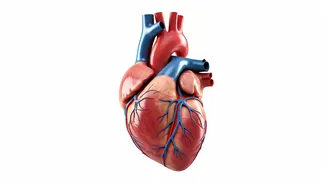Dietary Adjustments
One of the most impactful strategies involves altering your diet. Experts suggest focusing on potassium-rich foods, which can help counteract the effects
of sodium. Bananas, for instance, are a convenient source of potassium. Furthermore, incorporating a balanced diet that prioritizes whole foods over processed ones is crucial. Consider reducing your intake of sodium by limiting processed foods, canned goods, and fast food. This dietary shift not only helps manage blood pressure but also enhances overall health by providing essential nutrients and reducing the intake of unhealthy fats and sugars.
Breathing Exercises
Another effective technique involves specific breathing exercises. These exercises can help calm your nervous system and subsequently lower blood pressure. One such technique is deep breathing, where you slowly inhale deeply, hold your breath for a few seconds, and then exhale slowly. Another method is box breathing, which involves inhaling for a set count, holding for the same count, exhaling for the same count, and holding again. Practicing these exercises regularly can decrease stress levels and have a positive impact on blood pressure readings. Even a few minutes a day can yield noticeable results.
Regular Physical Activity
Regular physical activity is vital for managing blood pressure, according to medical professionals. The guidelines recommend at least 150 minutes of moderate-intensity exercise per week, such as brisk walking, cycling, or swimming. Engaging in these activities helps strengthen the cardiovascular system, making it more efficient at pumping blood. Moreover, exercise aids in weight management, which is another factor in lowering blood pressure. Consistency is key; integrating regular exercise into your routine is a powerful tool in your overall health strategy.
Stress Management
Managing stress is another crucial element in controlling blood pressure. Chronic stress can cause blood pressure to spike. Therefore, incorporating stress-reducing activities into your life can make a difference. Techniques include meditation, yoga, or spending time in nature. Mindfulness practices and relaxation techniques can calm your mind and body. Additionally, activities like listening to calming music or engaging in hobbies you enjoy can serve as effective stress relievers. By reducing stress, you indirectly assist in maintaining healthy blood pressure levels.
Adequate Sleep Habits
The amount and quality of sleep significantly affect blood pressure. Insufficient sleep can lead to elevated blood pressure levels. Adults should aim for 7-9 hours of quality sleep each night. Establishing a regular sleep schedule, creating a relaxing bedtime routine, and ensuring your bedroom is conducive to sleep can improve sleep quality. Avoid caffeine and alcohol before bed, as they can disrupt sleep patterns. Prioritizing sleep is not only good for your energy levels, but is also a critical element for regulating your blood pressure.
Hydration and Blood Pressure
Maintaining proper hydration is often overlooked but plays a significant role in blood pressure regulation. Drinking adequate water helps maintain blood volume and supports optimal kidney function, which is critical for blood pressure control. Dehydration can lead to increased blood pressure. It is advisable to drink water throughout the day, especially before, during, and after exercise, and in hot weather. Staying hydrated helps your body function efficiently and supports overall cardiovascular health. Aim for at least eight glasses of water per day, and adjust intake based on your activity level and the climate.
Limit Alcohol Intake
Limiting your alcohol consumption is essential for managing your blood pressure. Excessive alcohol intake can raise blood pressure over time. If you choose to drink alcohol, do so in moderation. Guidelines suggest no more than one drink per day for women and up to two drinks per day for men. Regularly exceeding these limits can negatively impact blood pressure. Monitoring your alcohol consumption and being aware of its effects on your health is crucial for keeping your blood pressure within a healthy range, along with supporting your overall well-being.















